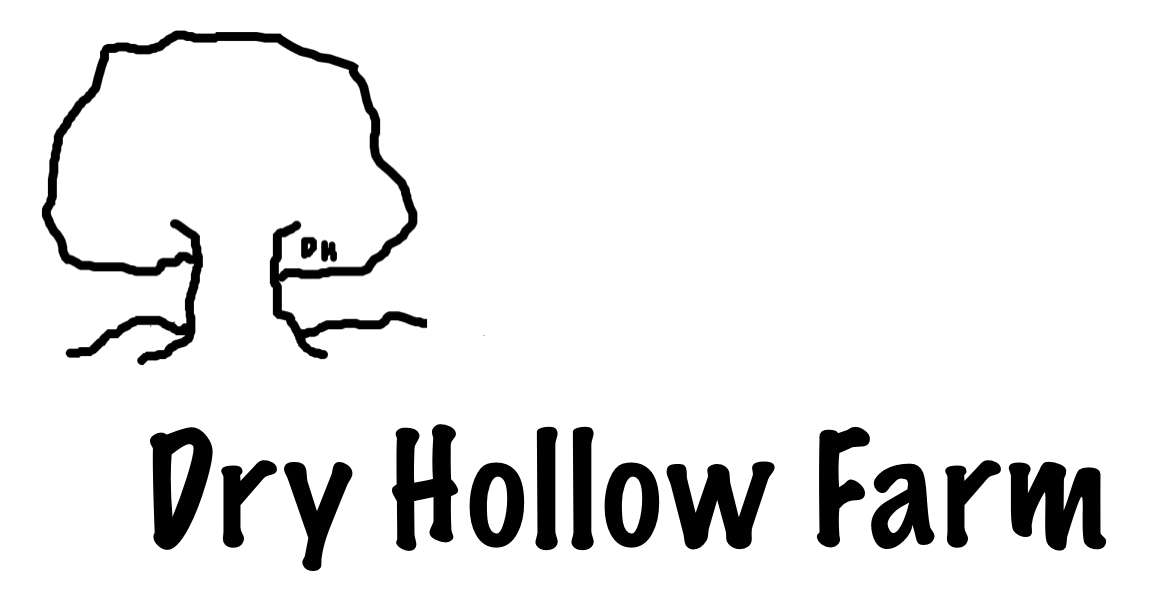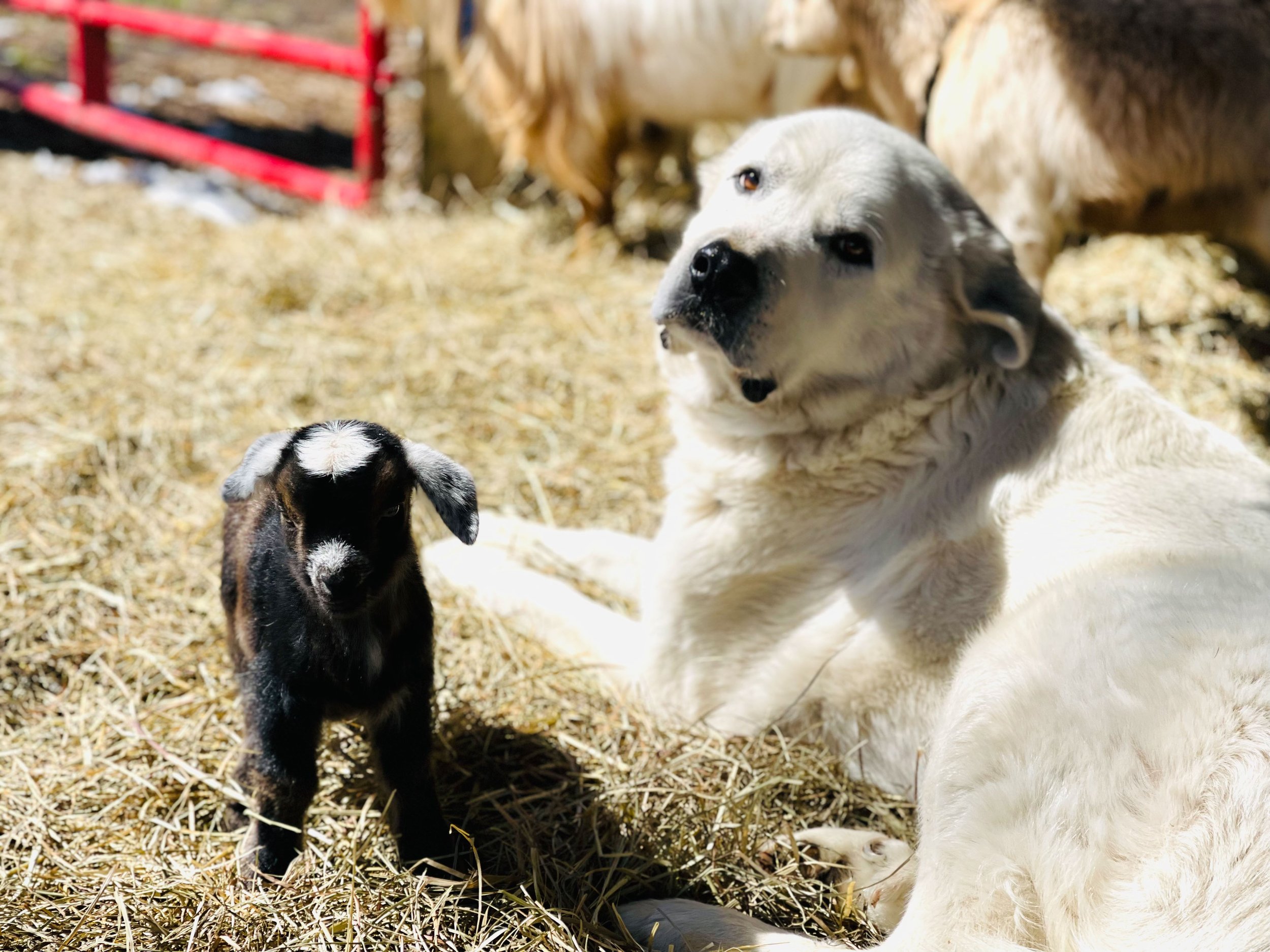Worth Our Weight in Dog Food
Captain, a very handsome Great Pyrenees - Anatolian Shepherd mix, taught me the value of owning a livestock guarding dog. He arrived at Dry Hollow Farm as a puppy our first year, and became a permanent fixture until this past summer.
Let me share a story … When I first developed Dry Hollow Farm as an agricultural enterprise, I included angora rabbits as an addition to sheep for fiber production. We produced several litters, and in pleasant weather, I allowed mother and kits to roam a “rabbit playpen” for additional grazing opportunities. One morning, after the family unit had spent thirty minutes or so stretching their legs, I did a headcount. One rabbit kit was missing. Captain sat nearby and watched as I discovered a small hole in the fence wire through which the kit must have escaped. I looked at him. He looked at me. There was no innocence in his eyes.
I knew I could not scold him for what I assumed was his morning rabbit snack. He licked his lips, and I sighed.
However, moments later, he stood and trotted toward the edge of the tree line close by. I watched as he nosed through the underbrush. Imagine my astonishment as he emerged with the missing rabbit kit dangling from his mouth. He dropped her at my feet beside the playpen fencing. I could swear he smiled.
Livestock Guarding Dogs are worth every penny spent on dog food. After ten years of raising Great Pyrenees, we wholeheartedly agree.
This is what we learned
#1 For every investment animal we own, there are wildlife critters who view them as available food sources. For our sheep and goats, predators include an ever-growing coyote population, packs of wild dogs, and turkey vultures (who gather in advance of a pasture birth with hopes of attacking newborn kids or lambs for the afterbirth). For our chickens or other small animals, there are fox, opossums, wildcats, skunks, and raccoons. Although good fences are paramount, the additional line of defense provided by our Great Pyrenees (“GP”) is invaluable.
#2 Livestock guarding dogs (“LGD”) in pasture are not obedience dogs. Although we regularly handle puppies to acclimate them for human interaction, they have one job - protect their flocks. They know this and will resist every effort to prevent their doing so. If you have obtained an LGD for pasture protection, then let him or her do their job. Removing them from their flock confuses them. Allowing them time to “roam free” confuses them. Upbraiding them when they growl at human strangers confuses them.
#3 Do not bring any livestock guarding dog onto your property after they are six months of age. We often receive messages from people who no longer want their dog and request we “take them” since we have a farm, plenty of property, and treat our animals well. Much to their consternation, our answer is always no. Although a mature LGD may adjust to a new community of people and animals, the risk that he or she will not is great. Even moving an LGD on your farm from one set of animals to another can prove problematic, by no means the fault of the animal. Plan wisely from the time you procure an LGD puppy so that he or she understands exactly where you plan them to live out their lives.
#4 We never expect a “quiet night on the farm,” the idyllic perspective of peaceful, still evenings many people believe they will find. LGDs generally sleep during the day and remain awake at night when predators are most active. Our Great Pyrenees patrol their respective fence lines and interval bark to alert predators of their presence. The likelihood of an active fight with coyotes is slim as wild animals know exactly where our GPs are and avoid them at all costs. Many evenings I stand on our porch and listen to local coyote packs circle away from our pastures as they hunt, moving instead to neighbors’ properties or crossing the road to the woods beyond. Every single night we lie in bed listening to the steady barking of our dogs. This is one reason why LGDs seldom do well in residential environs, but we are willing to trade a little sleep for knowing our animals are well protected in the dark.
Dr. Kathyrn Bush owns and operates Dry Hollow Farm, a working goat and sheep farm in Huntingdon, Tennessee. Together with her husband, Russell, she creates skincare products from their fresh goat milk, grows organic herbs, welcomes visitors to their two cabins on the farm (available for stays through Airbnb), keeps the farm’s on-site soap shop stocked with their handcrafted products, and enjoys working the farm in company with their Great Pyrenees dogs (who work hard guarding the animals). Check out their natural products featuring farm-grown ingredients here, and sign up for the Dry Hollow Farm newsletter to stay in touch and be the first to hear about farm news, events, and new products.




